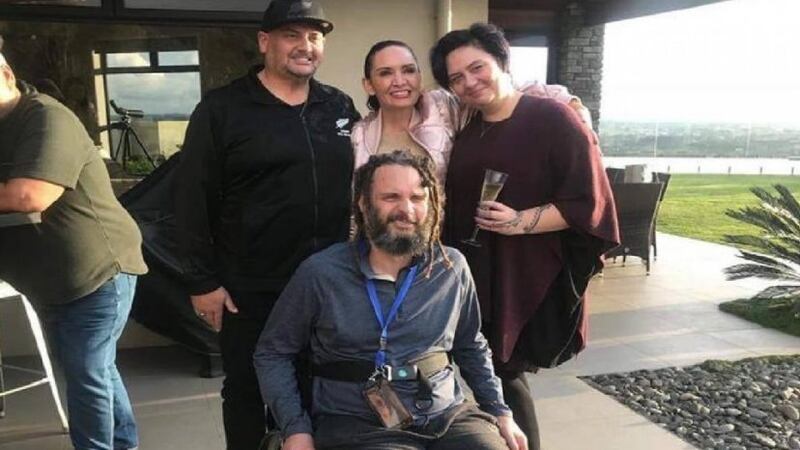Davis whānau. Source: Teresa Davis, Facebook
Support from the public on social media has helped stop an Auckland whānau from losing their home.
Father of four, Simon-Joe Davis became a tetraplegic after a car accident in 2017 and was about to lose his rental home last month as he couldn’t afford to maintain it.
At the time, his older sister Bridget Foliaki-Davis posted a photo to Facebook calling for help for her brother.
“He will have nowhere to live in a few weeks’ time and is desperately trying to find a suitable rental property that can accommodate him, his wheelchair, his children and his grandson," she wrote.
“Simon cannot attend open homes, search online and do all the normal things that people do when they are looking for accommodation.”
Simon cares for his four children and grandchild at his home in Whitford, Auckland.
“In the last couple of months his pain and spasms are so intense he can barely leave his bed, yet he is trying to be Dad, Grandpa and look after everyone.”
The post when viral and received support from members of the public, even catching the attention of members of parliament according to Simon's mother, Teresa Davis.
“The situation was brought to the attention of members of parliament and the Office of the MP for Tāmaki Makaurau has been instrumental in giving us a referral to top people at the Ministry of Social Development who do the housing assessments for Housing New Zealand,” she says.
After speaking to staff at HNZ, the family found that Simon qualified for disability housing. He also receives an allowance from the Accident Compensation Corporation (ACC).
His sons, aged 18, 22 and 28, have started working to provide financial support to help their father pay rent, which is around $1,100 per week.
However, his Working For Families tax credit was recently cut.
"It's still going to be really tight without that," says Teresa.
Teresa also shared her concern for people with low income and physical disabilities trying to find suitable housing.
“I always thought about that when he was in the spinal unit and there were a lot of people who were in wheelchairs because of medical conditions rather than accidents- and they don’t get the level of help as people do who’ve had accidents," she says,"So there’s a huge number of people out there who must be struggling with housing.”

